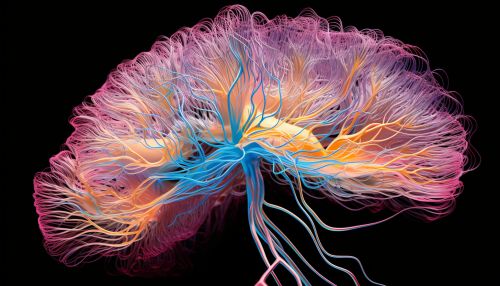Cognitive Styles and Personality
Introduction
Cognitive styles and personality are two interconnected facets of human psychology that influence how individuals perceive, process, and respond to information. Cognitive style refers to the preferred way an individual processes information, while personality is a set of enduring characteristics that define a person's behavior. Both cognitive styles and personality traits are thought to be relatively stable over time, although they can be influenced by environmental factors and personal experiences.


Cognitive Styles
Cognitive styles are the individual differences in the way people perceive, think, solve problems, learn, and relate to others. They are often described as a person's typical or habitual mode of problem solving, thinking, perceiving and remembering. Cognitive styles are not abilities, but rather preferred ways of using such abilities. They are usually described as a continuum, ranging from extreme ends, such as "field-dependent" and "field-independent", "analytic" and "holistic", "reflective" and "impulsive", among others.
Field-Dependent and Field-Independent
Field-dependent individuals are more likely to view the world in a holistic way, taking into account the entire field or context of a situation. They are more socially oriented and sensitive to others' feelings. On the other hand, field-independent individuals are more likely to focus on details and separate information from its surrounding context. They are more analytical, have a greater sense of self-efficacy, and are less influenced by social feedback.
Analytic and Holistic
Analytic cognitive style refers to a tendency to focus on parts of a problem or situation, breaking it down into its constituent elements. Individuals with an analytic cognitive style are more likely to use formal rules and logic in problem-solving. Holistic cognitive style, on the other hand, involves a focus on the overall structure and context, considering the problem or situation as a whole. Holistic thinkers are more likely to use intuition or heuristics in problem-solving.
Reflective and Impulsive
Reflective cognitive style is characterized by a preference for slow, thoughtful, and thorough data gathering and decision making, while impulsive style is characterized by quick and sometimes premature decision making. Reflective individuals tend to be more accurate in their decisions, while impulsive individuals are faster but more prone to errors.
Personality
Personality refers to individual differences in characteristic patterns of thinking, feeling and behaving. It is often described in terms of trait dimensions, which are consistent and enduring patterns of behavior. The most widely accepted taxonomy of personality traits is the Big Five, which includes openness, conscientiousness, extraversion, agreeableness, and neuroticism.
Openness
Openness involves dimensions of imagination, creativity, and a willingness to consider new ideas. Individuals high in openness are curious, imaginative, and open to new experiences, while those low in openness are more conventional and resistant to change.
Conscientiousness
Conscientiousness refers to a tendency to be organized, responsible, and hardworking. Individuals high in conscientiousness are reliable, organized, and diligent, while those low in conscientiousness are more spontaneous and less goal-oriented.
Extraversion
Extraversion is characterized by outgoingness, assertiveness, and positive emotionality. Individuals high in extraversion are sociable, assertive, and energetic, while those low in extraversion (introverts) are more reserved and less outwardly expressive of emotions.
Agreeableness
Agreeableness involves dimensions of compassion and cooperativeness. Individuals high in agreeableness are friendly, cooperative, and compassionate, while those low in agreeableness are more competitive and even manipulative.
Neuroticism
Neuroticism refers to a tendency to experience negative emotions. Individuals high in neuroticism are more prone to feelings of anxiety, depression, and vulnerability, while those low in neuroticism are more emotionally stable and resilient.
Relationship Between Cognitive Styles and Personality
Cognitive styles and personality traits are distinct yet interconnected aspects of human psychology. Cognitive styles influence how individuals perceive and process information, while personality traits influence how individuals behave and interact with their environment. Both are shaped by a combination of genetic and environmental factors and are relatively stable over time.
Research has shown correlations between certain cognitive styles and personality traits. For example, individuals who are field-independent (a cognitive style) tend to be more introverted (a personality trait). Similarly, individuals who are analytic (a cognitive style) tend to score higher on conscientiousness (a personality trait). However, these correlations are not absolute, and there is considerable individual variation.
Understanding the relationship between cognitive styles and personality can provide valuable insights in various fields, such as education, psychology, and human resources. For example, in education, understanding a student's cognitive style and personality can help tailor teaching strategies to enhance learning. In psychology, it can help in the diagnosis and treatment of mental disorders. In human resources, it can assist in employee selection and training.
